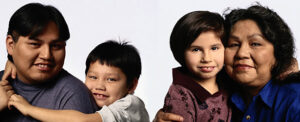“Being involved in the community helps to shape your thinking.
The outreach in being a blessing to others is a resource for reflection and much gratitude.”
~ Germany Kent
 This Buzz begins with a fascinating collection of articles on a proposed new category called profound autism, which CDC estimates affects 26.7% of children on the autism spectrum. We also connect you with the latest OSEP communication about evaluations under IDEA. We close with a focus on an area of Parent Center work that challenges and thrills us all—engaging with underserved families.
This Buzz begins with a fascinating collection of articles on a proposed new category called profound autism, which CDC estimates affects 26.7% of children on the autism spectrum. We also connect you with the latest OSEP communication about evaluations under IDEA. We close with a focus on an area of Parent Center work that challenges and thrills us all—engaging with underserved families.
Here’s to the terrific work you do!
The CPIR Team
_______________________
Specific Disability Info | Profound Autism
What Is Profound Autism?
The autism spectrum includes children with a wide range of strengths and needs: from kids who excel academically to children with significant needs that require round-the-clock care. This Child Mind Institute enewsletter focuses on the children who are most impaired and puts forth a proposal to create a new category for them called profound autism, which according to the CDC estimates affects 26.7% of those on the autism spectrum. Separate articles within the enewsletter include:
What is profound autism?
What is neurodiversity? (Also in Spanish)
Helping kids with autism build communication skills (Also in Spanish)
Do autistic behaviors have medical causes? (Also in Spanish)
Autism and wandering (Yes, in Spanish, too!)
_______________________
Reminder from the Feds
RTI/MTSS May Not Be Used to Delay or Deny IDEA Evaluation
In March 2023, OSEP emailed copies of two memoranda to IDEA Part B Directors and Section 619 Coordinators regarding the child find requirements in IDEA. OSEP took this action in response to concerns that initial evaluations to determine whether a child has a disability have sometimes been delayed or denied by LEAs until a child goes through a state’s multi-tiered system of supports (MTSS) process, sometimes referred to as Response to Intervention (RTI). Read OSEP’s correspondence and connect with the memos at the link above.
_______________________
Reaching and Engaging with Underserved Families
Outreach and Engagement of Underserved Populations
Effective community engagement and outreach takes careful planning and acknowledgement that each population that we work with is unique and offers us opportunities to broaden our understanding of what makes a community. Lots of useful resources can be found in this article, which shares 6 essential strategies for inclusive engagement and culturally competent outreach. From the Vocational Rehabilitation Technical Assistance Center for Quality Employment (VRTAC-QE).
Partnering with Hard-to-Connect Families
Often, when people with disabilities consider seeking employment, their families strongly influence the decision. Especially with transition-aged youth, family influence can sway whether a consumer decides to try working. There is still a persistent belief that work income will cancel out any benefits the person with disability receives. Also from VRTAC-QE.
 Native American Resource Collection
Native American Resource Collection
Don’t forget about this invaluable resource collection designed expressly for Parent Centers to support new and current staff in their outreach to Native American parents of children with disabilities. The collection is organized in 4 tiers of learning that reflect what we know about journeys of multicultural growth. Each product within contains current information about the traditional culture and contemporary issues important to Native families. Consider, for example, articles such as Cultural Awareness and Connecting with Native Communities and The Impact of Traditional Native Values on Transition Planning.
_______________________
 This eNewsletter from the CPIR is copyright-free.
This eNewsletter from the CPIR is copyright-free.
We encourage you to share it with others.
https://www.parentcenterhub.org
Subscribe to the Buzz from the Hub.
See past issues of the Buzz.
____________________________________________________________

